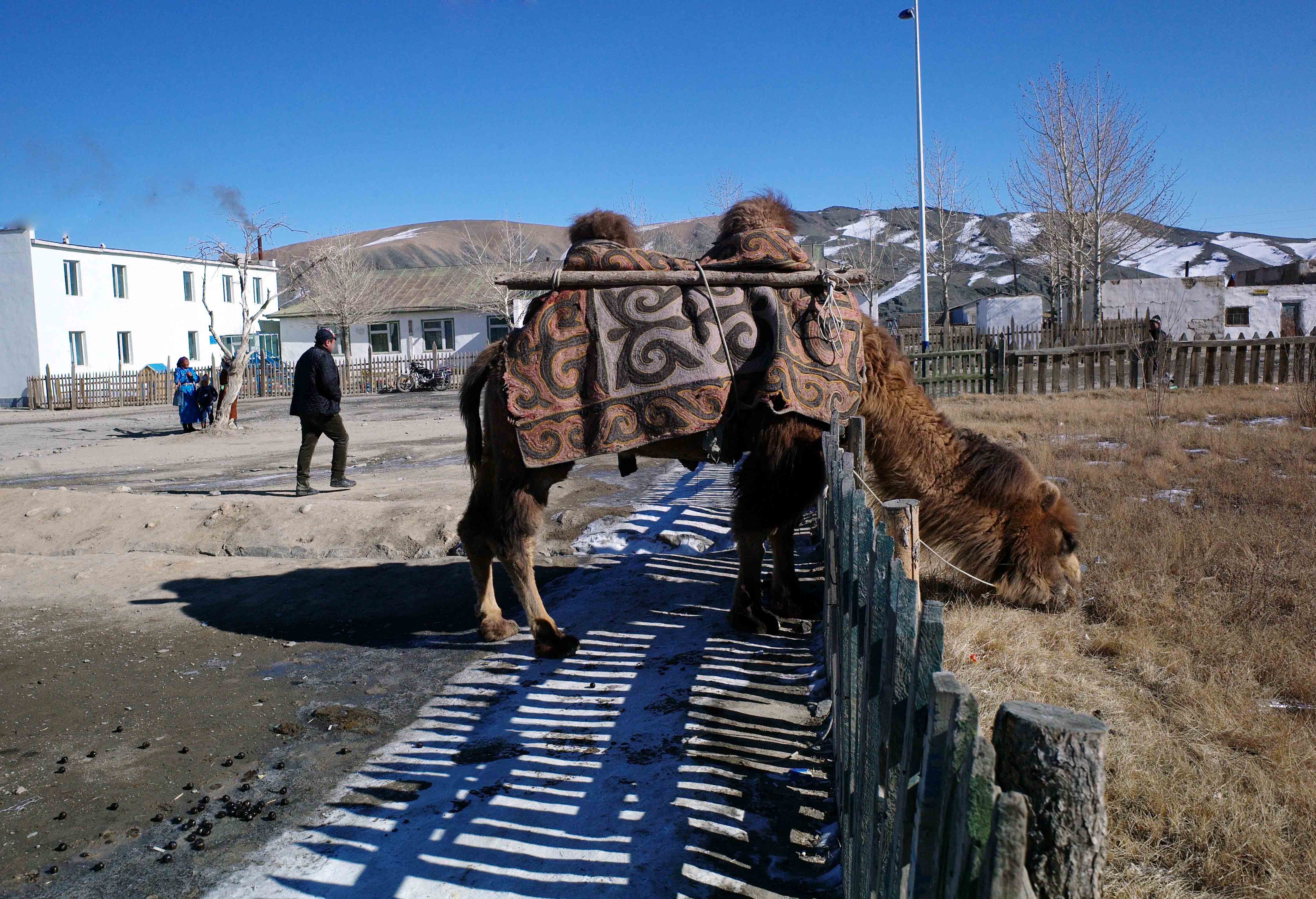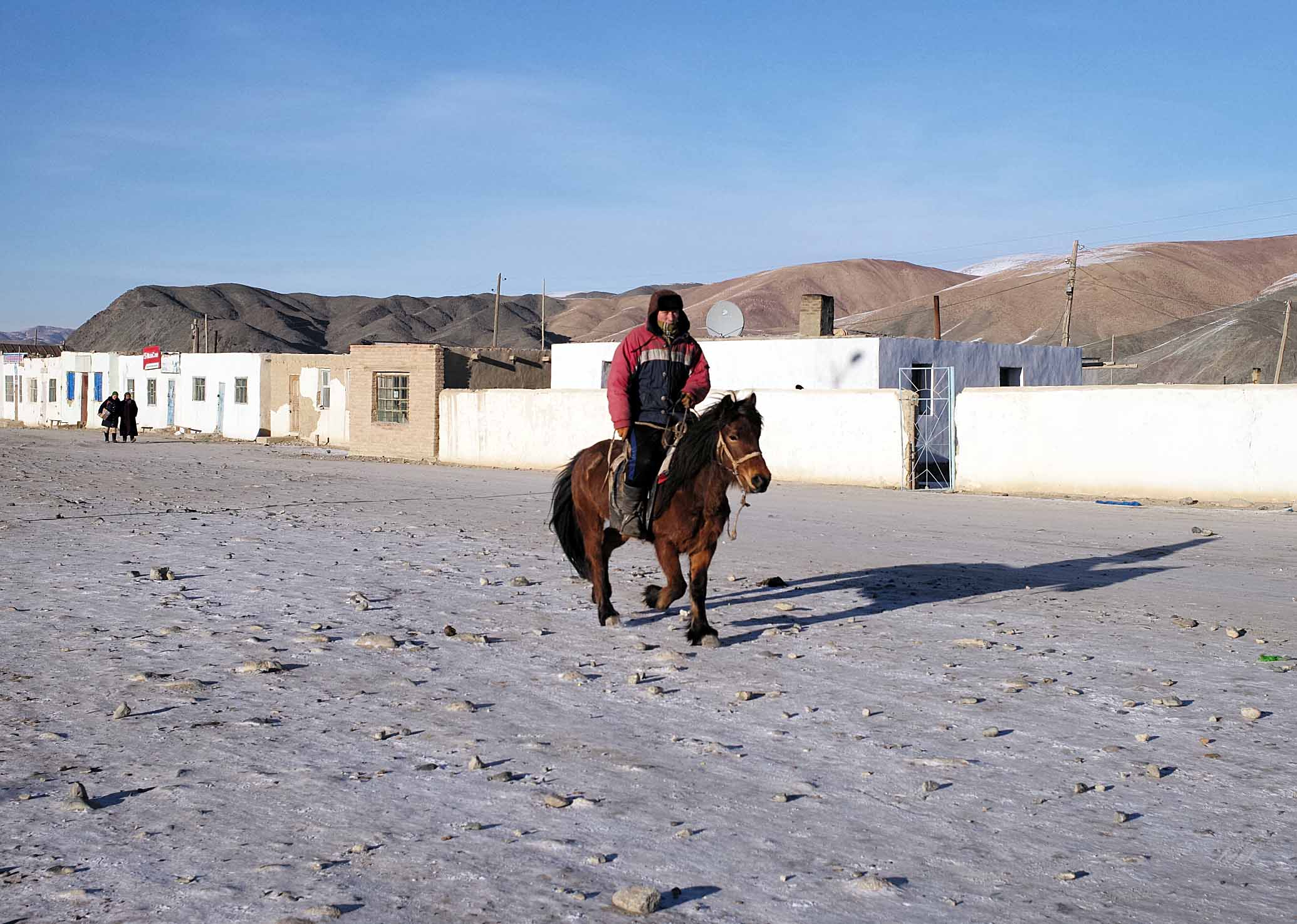In the middle of nowhere at the centre of everything.
I headed back to Mongolia to find the old woman and the girl with a disability. I came across them on the remote Steppe in 2010. I realised that they were doing something important together and I wanted to understand what it was. In the winter of 2016 I found them again living with other members of their family in Altai Village in in western Mongolia.

The girl with a learning disability, Akerke, attended the village school. After I showed the Head Teacher the original photograph she invited me in and I was free to wander around the school. Almost immediately I spotted her (on the left) in the corridor talking to a friend and I followed them into their classroom. To my surprise the teacher said she recognised me and was willing to take me to the family home on the edge of the village. There I found Anikei her grandmother, Sapargul her mother, and Tilek her father.







Tilek, Akerke’s father, explained his approach to her development:
“We lived in the countryside where you met us. I didn’t want my disabled daughter to be in a dormitory institution a long way from her family. I wanted my daughter to develop naturally, no medicine except for occasional massage with horse fat, no drugs, lots of fresh air, good natural water, open spaces, a place to run and play, and where people are peaceful. When we moved to Altai she was never bullied at school and she made friends and people were generous. I told the teachers to go at her own speed, to follow her interests, and not to pressure her to keep up with other children. She is making good progress in her education. She hasn’t been pressured so she is happy. She has friends at school.”
To me Akerke has come a long way since I saw her outside the Ger in the middle of nowhere. Her father’s approach, her grandmother’s support, and the key principle of keeping her close to the family, within a community, and helping her to make friends, had worked well. It believe that she had attained her full potential and was happy. That’s what matters and is at the centre of everything. So there I was in the middle of nowhere at the centre of everything.